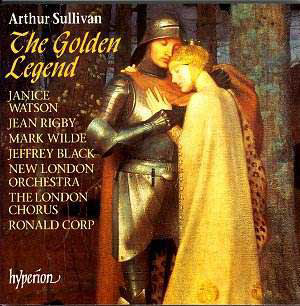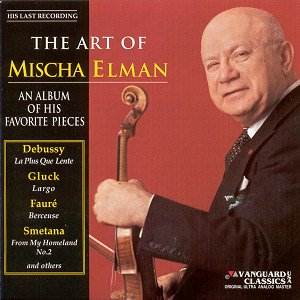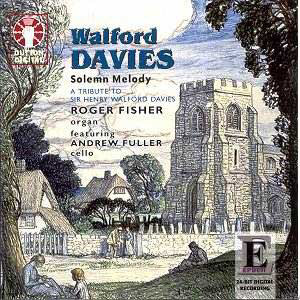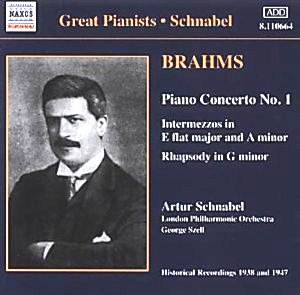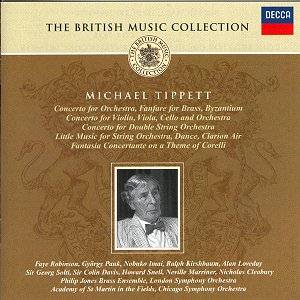 Composer: Michael Tippett
Composer: Michael Tippett
Works: Concerto for Orchestra (1964), Concerto for violin, viola, cello and orchestra (1981), Little Music for String Orchestra (1946), Fantasia Concertante on a Theme of Corelli (1953), Concerto for Double String Orchestra (1940), Fanfare for Brass (1.54), Dance Clarion Air (4.51), Byzantium (1991)
Performers: LSO/Colin Davis (Triple Concerto), Gyorgy Pauk (violin), Nobuko Imai (viola), Ralph Kirshbaum (cello), Academy of St Martin in the Fields/Marriner (Little Music, Corelli, Concerto), Philip Jones Brass Ensemble (Fanfare), Schola Cantorum of Oxford/Nicholas Cleobury (Dance), Faye Robinson (sop)/Chicago SO/Georg Solti
Recording: Various recordings from 1964-1991, ADD/DDD
Label: DECCA
Michael Tippett, a towering figure in British music, navigated the complexities of the 20th century with a voice that was both quintessentially English and deeply individualistic. This two-disc collection encapsulates a cross-section of his work, illustrating not only his stylistic evolution but also the socio-political environment that shaped his artistic output. The included pieces span from the solemnity of the Second World War through to the introspective reflections of the late 20th century, showcasing Tippett’s imaginative breadth.
The Concerto for Orchestra, recorded shortly after its Edinburgh Festival debut in 1964, presents a vibrant yet dissonant landscape, emblematic of its era. Colin Davis’s interpretation captures the work’s spiky brilliance, though it occasionally teeters on the edge of abstraction. The Largo, a notable section where strings take a more prominent role, reveals a more lyrical side of Tippett’s writing. Yet, one cannot help but wonder if the work’s emotional resonance fully emerges; it feels more like an intellectual exercise than an emotional journey. In contrast, the Triple Concerto, composed nearly two decades later, shines with a vibrant lyricism and emotional depth that feels more accessible. The yearning motifs played by Pauk, Imai, and Kirshbaum evoke a palpable sense of longing, particularly in the exquisite passage at 3:41, which remains etched in memory long after listening.
The Concerto for Double String Orchestra, recorded in 1940, stands as a quintessential Tippett work, one that embodies the spirited dialogue and melodic vitality characteristic of his style. Its lively patter and radiant textures offer a delightful contrast to the more somber tones of the Concerto for Orchestra. Here, the Academy of St Martin in the Fields under Marriner excels, delivering a performance that is both delicately nuanced and exuberantly alive, with the final movement serving as an irresistible showcase of Tippett’s melodic inventiveness.
The Fantasia Concertante on a Theme of Corelli is a compelling homage to Baroque traditions, imbued with Tippett’s characteristic vigor. Marriner’s conducting imbues the piece with an electric quality, blending the grandeur of its historical inspiration with a modern sensibility. The recording quality is particularly noteworthy; it retains a warmth and clarity that enhances the intricate interplay between soloists and orchestra, exemplified by the striking ‘machine gun’ attack at 2:54, which is executed with precision and flair.
While the Little Music for String Orchestra offers a more understated charm, it lacks the emotional heft found in Tippett’s other works. Its simplicity is appealing but ultimately feels less impactful compared to the more ambitious compositions. The late work Byzantium poses a different challenge, reflecting a more fragmented approach than earlier pieces, echoing the complexities of Tippett’s later style. The performance by the Chicago Symphony under Solti captures the ethereal qualities of the piece, though the lack of provided texts diminishes the listener’s engagement with its lyrical content.
This collection is commendable not only for its historical breadth but also for its exceptional performances across the board. The variety of musical styles and the quality of the recordings make it an invaluable resource for understanding Tippett’s oeuvre. Although some works may not resonate as strongly as others, the Triple Concerto and Concerto for Double String Orchestra are undeniably treasures of British music, offering a vivid testament to Tippett’s enduring legacy. The set is a significant contribution to the exploration of Tippett’s artistry, presenting not just a retrospective but a celebration of his profound musical voice.
